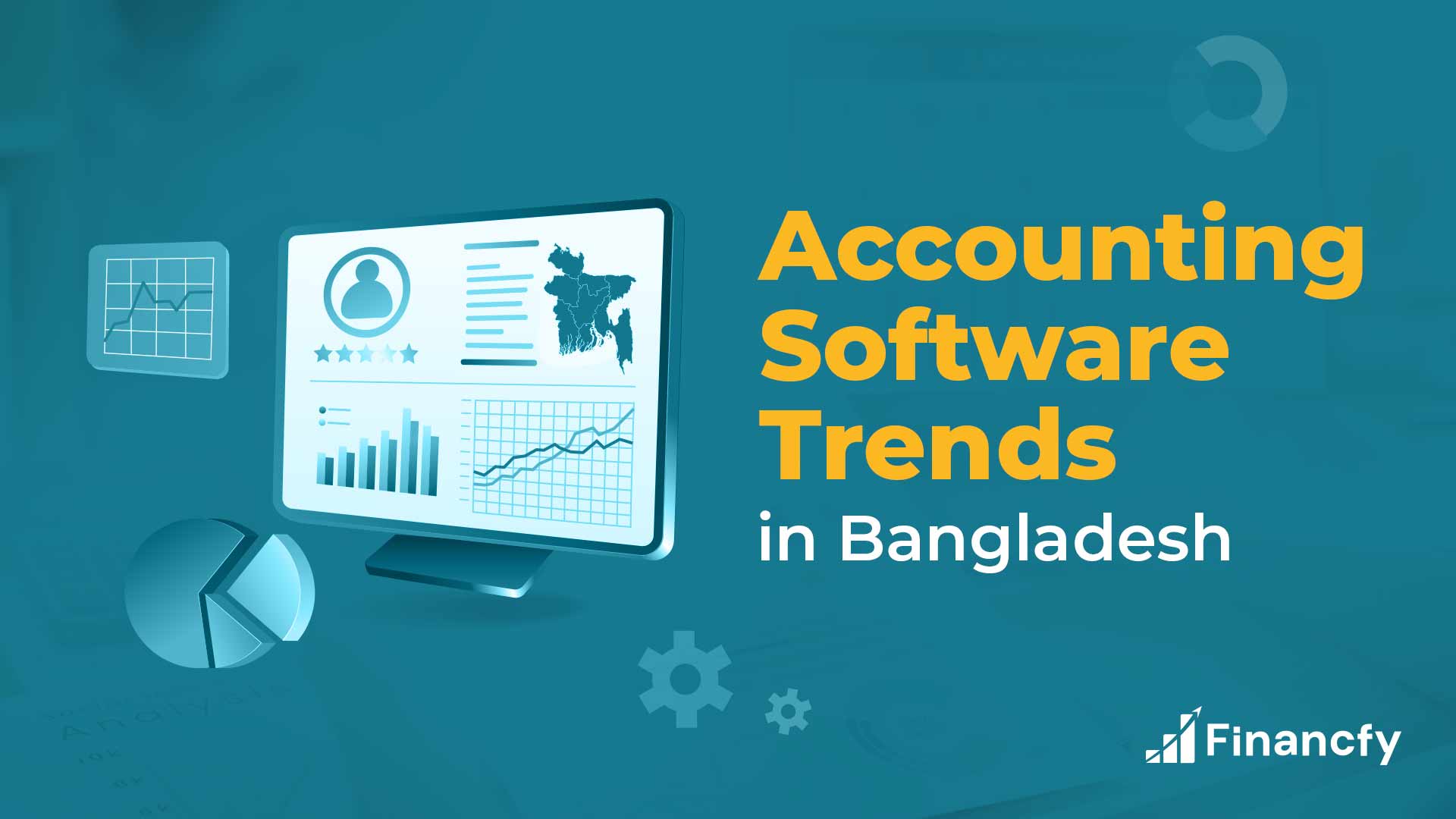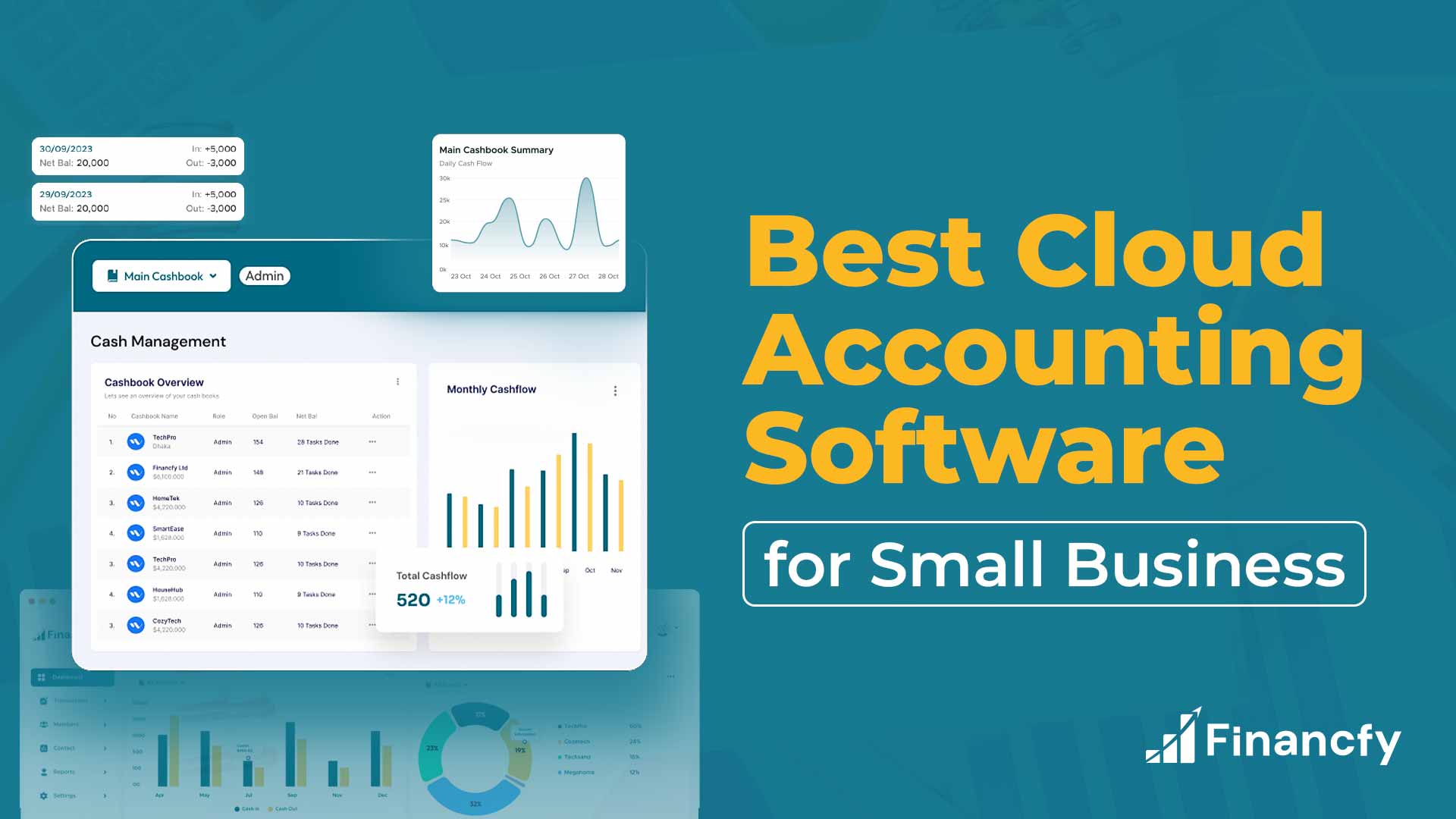Accounting is the systematic process of recording, summarizing, analyzing, and interpreting financial transactions of a business or organization.
For a long period, a manual process of accounting was running for bookkeeping and data entry.
Today, Businesses operate with a very different financial management structure. The evolution of accounting methods and accounting software made it easy for businesses to track their financial performance.
Bangladesh’s market offers opportunities created by its dynamic business environment, demographic potential, and strong economy. The technological advancements and evolving international trade dynamics have had a significant impact on accounting practices in Bangladesh in recent times.
In this article, we will discuss accounting software trends in Bangladesh. We will also be learning about the global changes in accounting practices.
Key Takeaways
- Businesses must remain adaptive to accounting software trends as technology evolves rapidly.
- Emerging technology, such as cloud-based solutions and mobile applications, may increase efficiency and competitiveness.
- AI and automation integrated with accounting software is a revolutionary change in accounting practices.
- Expert accountants anticipate significant opportunities for automation and artificial intelligence to be integrated into accounting systems. Businesses are switching rapidly to automated and AI-integrated accounting software systems.
- Today accountants are considered as strategic advisors for businesses. So, only technical accounting knowledge is not enough.
- Accounting software systems are providing a vast amount of remote work solutions as data can be accessible from anywhere.
- Taking strong security protocols and ensuring compliance with regulatory requirements is very important.
- Businesses that embrace change as an opportunity for growth and evolution will benefit from emerging trends.
List of Accounting Software Trends in Bangladesh
15 Accounting Software Trends in Bangladesh
1. Rise of Cloud-Based Solutions
- With cloud-based accounting software systems, financial data can be accessed from anywhere.
- Businesses in Bangladesh are rapidly shifting to cloud-based accounting.
The days of working in a stuffy office with a desktop computer are long gone. The cloud-based accounting software brought big changes. Businesses in Bangladesh can access their financial data anytime, anywhere, as long as they have an internet connection.
A study shows that approximately 80% of accountants in Bangladesh prefer cloud accounting due to its efficiency in handling tasks such as asset management, payroll, and multi-currency transactions.
Moreover, a report by RapidScale revealed that 94% of businesses observed significant service improvements after transitioning to cloud accounting systems. These statistics illustrate the growing trend towards cloud-based accounting systems.
Cloud-based accounting software in Bangladesh offers various features and file-sharing facilities that are essential for modern business operations.
Cost-Effectiveness for SMEs
Traditional accounting software solutions often come with high initial expenses. This makes them prohibitively expensive for businesses with limited resources.
Cloud-based solutions have subscription-based pricing models and pay-as-you-go flexibility. This cost-effective method of accounting software allows SMEs to invest their limited resources more strategically.
Gartner predicts that worldwide end-user spending on public cloud services is expected to grow to $678.8 billion in 2024.
2. The Automation Wave
- A large amount of accounting processes can be automated seamlessly.
- Accounting professionals and business leaders support automation to be integrated with accounting systems.
Manual bookkeeping is rarely found after the evolution of automation.
Automation simplifies and speeds up monotonous tasks like payroll management, reconciliation, and invoice processing. It saves valuable time for accounting professionals to focus on strategic decision-making. With automation, invoices are automatically scanned, coded, and posted to the general ledger without human intervention.
Automation minimizes the risk of errors and ensures the integrity of financial information. Automated accounting software comes with built-in validation checks and real-time error alerts. This is crucial for businesses that need to maintain compliance with regulatory standards.
3. Regulatory Adaptations
Staying compliant with Bangladeshi financial laws is a top priority for businesses operating in the country. Accounting software provides businesses with the tools and functionality needed to ensure adherence to regulatory requirements. Global standards play a crucial role in shaping financial reporting practices. Businesses in Bangladesh looking to compete on the global stage, must align with international standards.
Accounting software in Bangladesh is adapting to global standards such as International Financial Reporting Standards (IFRS) and Generally Accepted Accounting Principles (GAAP).
Businesses can now generate financial reports that meet international standards. Also, businesses can access comprehensive libraries of regulatory frameworks and accounting standards using accounting software. It keeps them abreast of global best practices.
4. ERP and Accounting Synergy
- Integration of ERP and accounting systems simplifies workflows, reducing manual effort and minimizing errors.
- With centralized data, different departments can collaborate seamlessly, which improves communication and decision-making.
- Accounting software integrated with an ERP system saves time and resources.
The integration of Enterprise Resource Planning (ERP) systems and accounting software makes business operations smoother and more efficient. It allows businesses to combine their financial data with different departments. All the data is entered into a single application and can be accessed from each department.
With ERP and accounting software, businesses can find out they’re performing financial performance. They can track cash flow, monitor inventory levels, and analyze sales trends in real-time. This helps to find opportunities and address issues before they become problems.
5. Artificial Intelligence Integration
- AI integration in accounting software systems gives more accurate prediction of future financial performance.
- Predictive analytics provide valuable insights into market trends and customer behavior,
The integration of artificial intelligence in accounting software systems is going to change the future of accounting practices. The Bangladesh Artificial Intelligence in Accounting Market is expected to see significant growth from 2024 to 2030.
Both large enterprises and small and medium-sized enterprises (SMEs) are increasingly adopting AI-powered accounting solutions. AI algorithms analyze historical data to identify patterns and trends that give more accurate predictions.
AI-powered fraud detection systems analyze vast amounts of transaction data in real-time. By detecting fraudulent activities early, businesses can mitigate financial losses. AI integration helps businesses comply with regulatory requirements and ensure adherence to industry standards.
6. Cybersecurity Frontiers
- The robust encryption methods of accounting software systems ensure sensitive financial data remains secure.
- By implementing real-time monitoring solutions, businesses can detect and respond to cybersecurity incidents promptly.
Businesses often carry sensitive data of their finances, payroll, and taxes. Data breaches can cause serious damage and blow up their reputation.
Unauthorized access to financial systems and data is prevented by putting restricted access controls and user authentication methods in place.
Also, Businesses can utilize threat intelligence tools to stay up to date on new cyber threats and trends.
7. Actionable Insights from Big Data
- Businesses have recognized the importance of data analytics.
- Creative thinking and problem-solving skills are a necessity for accountants for the changes they are facing.
It’s not just about collecting data, it’s about extracting meaningful insights. Accounting software helps businesses in data-driven decision-making.
Big data analytics allows businesses to analyze large datasets and find hidden trends, patterns, and correlations. Also, with big data analytics, financial organizations analyze individual customer data.
It helps to understand their financial behavior, preferences, and goals. This way businesses can make sure their financial products and services meet the specific needs of each client.
8. Accountants as strategic advisors
- The role of accounting professionals is evolving beyond traditional bookkeeping, and generating financial statements and balance sheets.
- Accountants today should be equipped with business advisory skills.
Today’s accountants are expected to possess not only technical accounting knowledge but also critical thinking abilities. They must be adept at analyzing complex data sets, and communicating insights effectively.
Accountants with analytical skills and strategic thinking are in a unique position to provide insightful advice. They interpret financial data, identify trends, and forecast future outcomes. They contribute to strategic planning and help businesses capitalize on opportunities.
Accounting professionals are often called upon to collaborate across departments to provide strategic guidance to stakeholders from finance to operations to marketing.
9. Real-Time Reporting
- Transparent financial reporting increases trust among stakeholders.
- Accounting software plays a crucial role in transparent financial reporting.
Financial reporting is the best way for the public and stakeholders to learn about the businesses performance. Investors, regulators, and other stakeholders expect timely and accurate information to make informed decisions. They assess the financial health and sustainability of organizations with this information.
This demand for financial disclosure shows a broader trend towards transparency and accountability in business regulation. Businesses build stronger relationships with stakeholders and enhance their reputation in this way. Financial transparency ensures to meet the growing demand for compliance with regulatory requirements.
10. In-House VS Outsourced Accounting
- In the starting period, small businesses keep their accounting in-house.
- In-house accounting gives more control and outsourced accounting is more cost-effective.
Businesses maintain full control over their accounting processes in in-house accounting. Accounting processes can be customized by in-house teams to meet the specific needs and preferences of the business. And keeping financial data in-house may increase confidentiality and data security. Research in 2021 shows that 62% of small businesses in the US use in-house accounting. But in-house accounting can be costly and requires training and technology infrastructure.
On the other hand, outsourcing accounting can be more cost-effective than maintaining an in-house team. Outsourced accounting provides access to expertise as needed. But it lacks direct control over accounting processes and financial data. And sharing sensitive financial information with third-party providers may raise concerns about confidentiality and data security.
For the initial period, small businesses maintain an in-house accounting system. But as the business grows the financial datasets become more complex. Then it seeks the help of outsourced accountants as they have the expertise to deal with complicated financial issues.
- Social media integration is a powerful tool for businesses for broad marketing strategy.
- Social media helps to collect a vast amount of valuable data.
Few years back, the social media communication system was considered unprofessional. Today, social media has become a powerful tool for businesses to connect with their audience, build relationships, and boost brand awareness.
By utilizing popular social platforms such as Facebook, Instagram, Twitter, and LinkedIn, businesses in Bangladesh can engage with customers in real-time, respond to inquiries, and showcase their products and services to a wider audience. It helps businesses to interact with customers through comments, messages, and live chats.
Social media integration helps to track valuable data like engagement rates, reach, impressions, and conversion rates across various social media channels. By analyzing these metrics, businesses can identify trends and patterns. The knowledge of how their audience perceives their brand, businesses can continuously improve their products and services.
12. Remote Work Solutions
- The COVID-19 pandemic has accelerated the transition towards remote work for accountants.
- Remote work solutions give access to a global Talent Pool.
Businesses across various industries, including accounting firms and financial institutions, have adopted remote work solutions. This method ensures continuity amidst unexpected challenges.
Remote work solutions provide accounting professionals a balance between work and personal life. Professionals can better manage their time and commitments. Remote work solution is cost-effective for businesses with limited resources.
Remote work solutions provide businesses to tap into a global talent pool. Businesses can access specialized skills and expertise to meet their requirements.
13. Digital Payment Solutions
- Integration of digital payment solutions with accounting software simplifies financial transactions.
- Digital payment solutions generate transaction data that can be seamlessly imported into accounting software.
Businesses can record payments, track invoices, and reconcile accounts more efficiently with digital payment solutions. This integration minimizes manual data entry errors and ensures accurate and up-to-date financial records.
Digital payment solutions provide businesses with greater control over their cash flow. It provides real-time visibility into incoming and outgoing payments. By automatically recording and categorizing transactions, businesses can simplify the audit process and reduce the risk of non-compliance penalties.
14. Integrated Financial Management Systems
- Businesses are increasingly using integrated financial management systems, which combines many accounting functions into a single platform.
- Integrated systems automate routine accounting tasks.
Integrated financial management systems offer seamless integration of accounting modules like general ledger, accounts payable, accounts receivable, payroll, and inventory management. It reduces manual effort and minimizes the risk of errors.
Integrated systems provide real-time access to financial data to generate timely and accurate financial reports. The system provides collaboration among departments as it is a centralized platform for sharing financial data and documents. With role-based access controls and permission settings, data security is ensured.
15. The Future Is Mobile
- In Bangladesh, businesses are increasingly turning to mobile accounting applications to manage their finances.
- The mobile accounting applications come with a lot of features for smooth accounting practices.
Mobile accounting applications provide professionals to access critical financial data from anywhere. Whether attending client meetings, traveling for work, or working remotely, accounting professionals can use mobile apps to stay up-to-date and manage their financial responsibilities.
It’s essential to ensure that the software is accessible on all devices. Software developers must prioritize responsive design principles. By prioritizing accessibility and mobility in accounting software development, businesses can stay ahead and adapt to changing market dynamics.
Final Thoughts
The current trends in the accounting industry in Bangladesh have introduced so many technological shifts in recent years.
The rapid evolution of new technology in accounting presents both challenges and opportunities. Businesses must embrace innovation to stay competitive.
The trends in the accounting industry are evolving day by day. Businesses must stay ahead of the curve to meet the evolving needs of their customers and stakeholders.
 See all features
See all features 


11. Social Media Integration